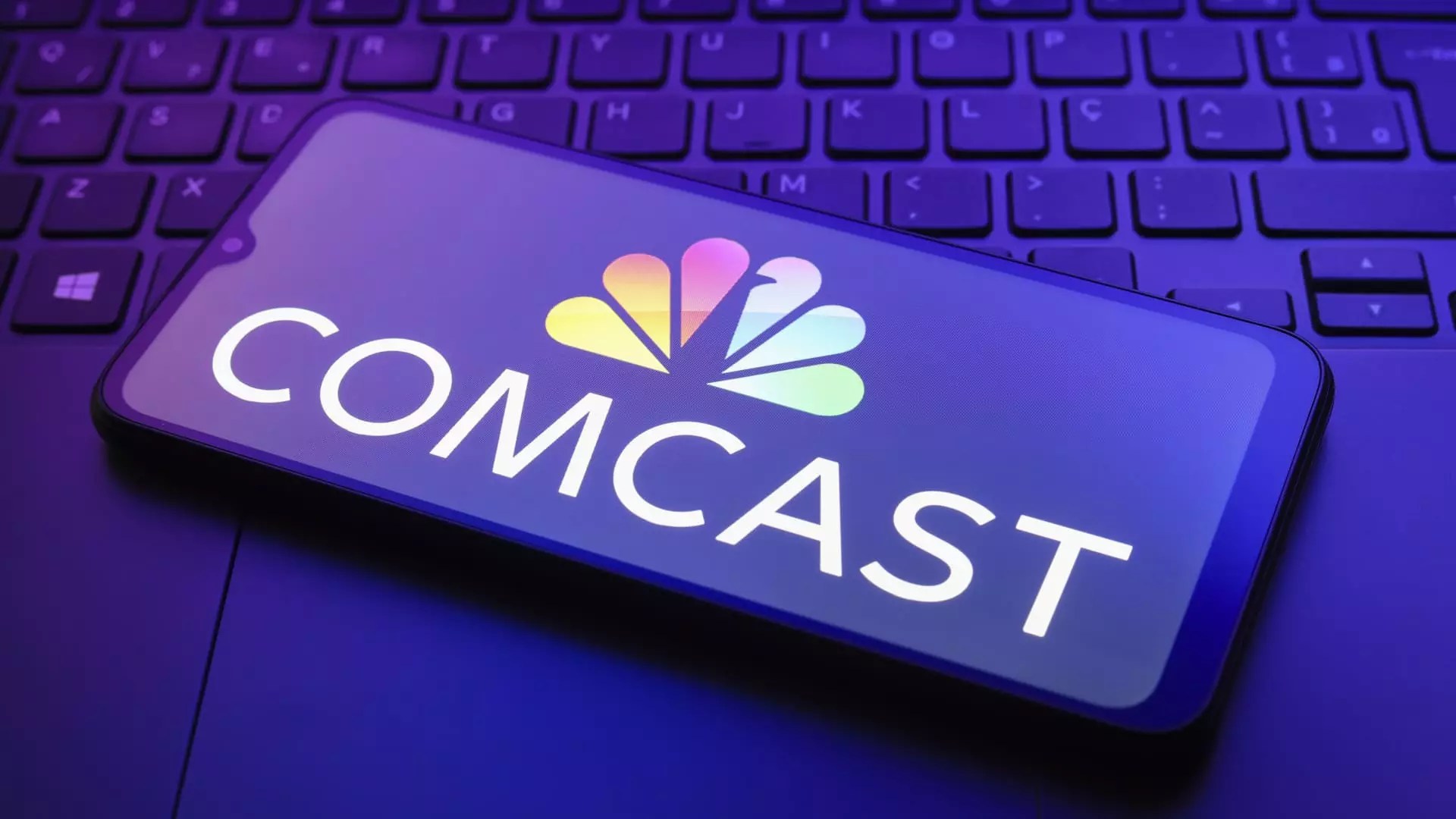In an era marked by rapid shifts in consumer behavior and technology, the advertising landscape has undergone a significant transformation. Comcast’s recent announcement regarding the launch of Universal Ads represents a strategic pivot aimed at revitalizing traditional media advertising while catering to the needs of small and medium-sized businesses (SMBs). As advertisers increasingly seek alternatives to major social media platforms, this initiative may signal a turning point in the dynamic interplay between digital and traditional advertising methods.
Comcast’s Universal Ads platform intends to streamline the ad purchasing process, enabling smaller businesses to easily buy advertising space across various premium video content providers. By uniting forces with well-established media groups such as NBCUniversal, A+E, and others, Comcast aims to create a broad network where advertisers can access the combined reach of multiple platforms in one fell swoop. As the announcement came just before the CES tech conference in Las Vegas, it underscores the importance of innovation in today’s competitive advertising environment.
Mark Marshall, chairman of global advertising and partnerships at NBCUniversal, emphasized that Universal Ads is designed to reach advertisers who have typically shied away from engaging with traditional media outfits. This development highlights a growing realization that many small businesses want to diversify their advertising strategies beyond the dominant social media platforms where they have previously concentrated their efforts.
Buying advertising space on traditional platforms often poses challenges that can deter smaller enterprises. The complex nature of ad transactions in premium content can be overwhelming compared to the more user-friendly ecosystems established by technology giants. Comcast’s initiative promises to simplify this process, offering a self-service model akin to social media ad purchases that could draw in new advertisers.
James Rooke, president of Comcast Advertising, underscored the urgency of this shift by pointing out that many businesses are seeking alternatives to major tech companies. As more advertisers grapple with the limitations and risks of relying solely on social media to reach their target audiences, Universal Ads presents itself as a viable option to rejuvenate their marketing strategies.
At the core of Universal Ads is not just the ambition to sign up new advertisers but also to collaborate with other media companies to present a unified platform that speaks to the needs of SMBs. By consolidating resources and creating a more cohesive advertising experience, Comcast aims to dismantle the barriers that currently hinder smaller businesses from accessing premium advertising slots.
The collaboration with FreeWheel, Comcast’s ad tech subsidiary, positions Universal Ads as a potentially groundbreaking platform. Beyond easing the ad purchasing process, the introduction of automated artificial intelligence tools for ad creation could address another pain point faced by smaller businesses: creating compelling advertising content on a limited budget.
The advertising industry has been experiencing a seismic shift in recent years. As consumers flock to streaming services and social media, traditional media outlets have struggled to maintain their foothold in a crowded market. The growing popularity of platforms like YouTube and TikTok has drastically altered viewing habits. In light of this, Comcast’s proactive approach to attract small advertisers could be a crucial step in regaining lost revenue.
Industry experts indicate that while traditional television remains effective for reaching broad demographics, digital platforms continue to dominate in growth. The stark contrast between TV advertising revenues and those generated by digital platforms paints a picture of an industry in flux, where innovation and adaptation are paramount.
As Comcast launches Universal Ads, the question remains: can it successfully entice advertisers away from the powerful lure of established social media platforms? The opportunity is certainly there, as demonstrated by the increasing demand for diversified advertising channels. This initiative might well help restore a balance to the advertising ecosystem as brands increasingly recognize the value of traditional media alongside their digital marketing efforts.
Ultimately, Universal Ads symbolizes a pivotal moment for the advertising industry and serves as a clarion call for smaller businesses yearning to break into premium content exposure. If successful, Comcast may not only pull advertisers back into traditional media but might also foster a more inclusive and accessible advertising landscape where innovative ideas and diverse voices can thrive. As the competitive landscape evolves, only time will tell how this ambitious initiative will reshape advertising for all stakeholders involved.


Leave a Reply